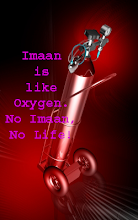1. How did the Hadith of Allah’s Messenger encourage learning?
The Hadith that ‘there is no disease for which Allah has not sent a cure’ gave Muslims an interest in the study of medical sciences. It motivated them to ponder over the teachings of Qur’an and come up with new discoveries in different branches of science.
2. In what fields of science were the Muslims particularly advanced?
The Muslims were particularly advanced in the field of mathematics and medical science.
3. Give a brief account of the hospitals in some of the old Muslim cities.
There were efficient hospitals in each Muslim city. The best hospitals had separate wards for fevers, surgical cases, and eye diseases. The most notable hospital was the Mansuri Hospital in Egypt, built in 1282 A.D. It had beds for several thousand people. It had separate sections for male and female patients.
4. What contribution did the Muslims make to medical science?
Muslims preserved the old scientific works and added their own special knowledge. They performed surgery and did amputations when necessary. They removed cancerous tissues. They created anesthetics that were used in surgical operations. They wrote hundreds of valuable medical books thus contributing towards the advancement of medical sciences.
5. How did each of the following contribute to medicine and learning:
a. Ar-Razi:
Ar-Razi, a great Muslim physician, wrote a medical encyclopedia in which he discussed measles, smallpox, kidney stones, skin diseases, and ways to maintain one’s health. He was the first scientist to differentiate between measles and small-pox. Ar-Razi wrote 200 medical books, which were translated into Latin and were widely consulted in medieval Europe.
b. Ibn Sina:
Ibn Sina explained to the world the human digestive system. He excelled in bacteriology, the basis of modern medical science. He proved that bacteria causes several diseases. He was an expert in anatomy and pharmaceutical sciences. His works were translated into Latin and Greek. His greatest contribution was the magnum opus, the Canonical Law of Medicine, a medical encyclopedia of immense interest.
c. Ibn Abi Hazm:
Ibn Abi Hazm was the first scientist to explain the theory of the circulation of blood in detail. He proved that food is fuel to maintain the heat of the body. He was a physician and a surgeon as well.
6. What Muslim achievements were passed on to the Western civilization?
Muslims in Turkey treated smallpox through vaccination in 1679. The system reached Europe in the 18th century through lady Montague, wife of the British ambassador in Turkey. Sir William Harvey was greatly benefited from the work of a Muslim scientist, Ibn Abi Hazm of Damascus, in propagating the theory of the circulation of blood. The Western civilization was greatly benefited from the encyclopedic works of Ar-Razi and Ibn Sina.
بسم الله والصلاة والسلام على رسول الله Assalamu Alaikum wa Rahmatullah….. I
have been working on this file for quite some time – added extra pages and
upda...










